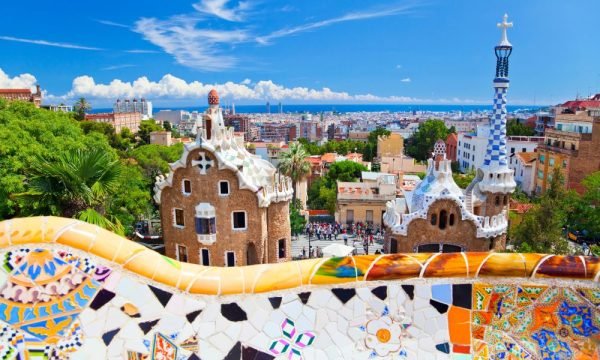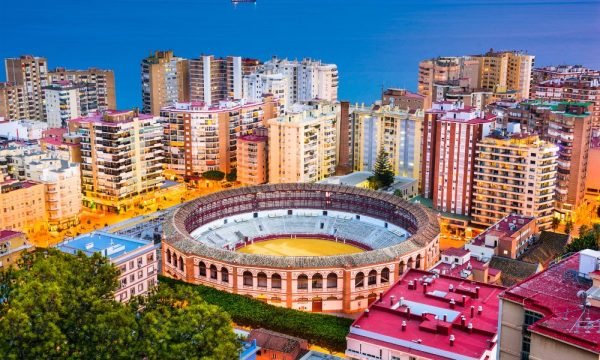



Spain offers something truly special: a quality of life that’s hard to match anywhere else in the world. The statistics speak for themselves – Spain’s life expectancy of 83 years ranks among the world’s highest, testament to what locals call “la buena vida” (the good life). This encompasses everything from the renowned Mediterranean diet to the emphasis on work-life balance, where long lunches with family aren’t just encouraged – they’re part of the culture. The economic landscape tells an equally compelling story. As the EU‘s fourth-largest economy, with a GDP of €1.5 trillion, Spain has emerged as a powerhouse in sectors ranging from renewable energy to technology. Cities like Barcelona and Madrid have transformed into major European startup hubs, attracting entrepreneurs and investors from around the globe. What makes Spain particularly attractive in 2025 is its cost of living – typically 25-40% lower than other Western European nations. Consider enjoying a coffee at a sidewalk café for €1.50, or renting a modern apartment in a vibrant neighborhood for less than you’d pay for a studio in London or Paris.
The 2025 immigration reforms have created unprecedented opportunities for qualified foreigners to make Spain their home. Our extensive experience in handling visa applications allows us to provide detailed insights into your options:
Spain’s Digital Nomad Visa has revolutionized the remote work landscape. Launched in 2023 and refined for 2025, this visa offers remarkable opportunities for remote workers and freelancers. Key benefits include:
Through our visa assistance program, we’ve helped hundreds of professionals like Sarah, a graphic designer from Canada, who secured her digital nomad visa and now runs her business from a beautiful Barcelona apartment overlooking Sagrada Familia. The streamlined process and tax benefits make this visa particularly attractive for international professionals.
Spain’s Non-Lucrative Visa offers an excellent pathway for those with passive income or savings who wish to enjoy Spanish life without working. This visa is particularly popular among retirees, investment income earners, and those taking extended sabbaticals. Based on the latest updates Key requirements include:
Through our visa assistance program, we’ve supported numerous successful applications, including Robert and Linda, a retired couple who now enjoy their Mediterranean lifestyle in Valencia, supported by their pension and investment income. The straightforward requirements and clear pathway to permanent residency make this visa an attractive option for those seeking to embrace Spanish living without professional commitments.
The journey to Spanish citizenship represents a significant milestone for many expatriates living in Spain. The standard route requires 10 years of legal continuous residence, but Spain offers several accelerated pathways depending on your background and circumstances. Citizens from Latin American countries, Portugal, Philippines, and Equatorial Guinea benefit from a shortened requirement of just two years, while refugees can apply after five years of residence. Those married to Spanish citizens can apply after just one year of marriage and residence in Spain.
The citizenship process involves more than just time requirements. Applicants must demonstrate their integration into Spanish society through language proficiency and cultural knowledge. This includes passing the DELE A2 Spanish language test and the CCSE cultural knowledge examination. The process typically takes between 12 to 24 months from application to resolution, during which applicants must maintain their legal residence and clean criminal record. Recent changes in 2025 have streamlined the application process, with many procedures now available online through the government’s digital portal. This modernization has significantly reduced processing times compared to previous years, making the path to citizenship more accessible than ever.
The cost of living in Spain remains one of its most attractive features for expatriates. While major cities like Madrid and Barcelona command higher prices, they still offer remarkable value compared to other European capitals. Even in these metropolitan areas, residents enjoy a high quality of life without the extreme costs found in London, Paris, or Amsterdam. Based on the latest information shows that a single person can live comfortably in Madrid or Barcelona for €2,000-2,500 per month, including rent. In smaller cities or coastal areas, this figure drops to €1,500-1,800. Here’s what you can expect in different regions:
Madrid and Barcelona offer world-class amenities while maintaining relatively reasonable living costs. A professional couple living in Madrid’s trendy Malasaña neighborhood or Barcelona’s Born district might spend:
What makes these cities particularly attractive is the value you get for your money. That €1,400 apartment in Madrid might be a renovated unit in a historic building with a rooftop terrace – something that would cost triple in Paris or London. Public transportation is extensive and affordable, eliminating the need for a car in most cases.
These Mediterranean gems have become increasingly popular among expats seeking a balance between urban amenities and coastal lifestyle. Valencia, in particular, has emerged as a sweet spot for many international residents. The city combines beautiful beaches, historic architecture, and modern infrastructure while maintaining costs significantly lower than Madrid or Barcelona. A typical day in Valencia might start with a €2 coffee at a beachfront café, followed by a walk through the converted riverbed park that winds through the city. Lunch at a local restaurant offering a “menú del día” (daily menu) costs around €12-15, including multiple courses and a drink. These small daily expenses add up to a remarkably affordable lifestyle that doesn’t compromise on quality.
Spain’s transformation into a startup powerhouse has been nothing short of remarkable. The country that was once known primarily for tourism and traditional industries has emerged as Southern Europe’s leading tech hub. This evolution has been driven by several factors, including government initiatives, international investment, and a growing pool of talented professionals.
Barcelona and Madrid have become magnets for international entrepreneurs, with success stories that rival those of Berlin and Amsterdam. Companies like Glovo, a delivery startup valued at over €2 billion, and JobandTalent, which revolutionized the temporary staffing industry, showcase Spain’s potential for nurturing unicorns. The ecosystem is supported by a network of accelerators, incubators, and co-working spaces. Barcelona’s @22 district has transformed from an industrial area into a thriving tech hub, while Madrid’s Silicon Alley continues to attract international investors and talent.
Key Growth Sectors:
The Spanish government has demonstrated its commitment to supporting startups through various initiatives. The Startup Act of 2023, further enhanced in 2025, created one of Europe’s most favorable environments for new businesses. This legislation includes:
Beyond tax incentives, the government has streamlined bureaucratic processes and created special visa categories for startup founders and essential employees. These changes have significantly reduced the time and complexity involved in establishing a new business in Spain.
Choosing where to live in Spain can significantly impact your experience as an expat. Each region offers its own unique blend of culture, opportunities, and lifestyle. Let’s explore Spain’s most popular expat destinations and what makes each special:
Madrid pulses with an energy that’s distinctly Spanish yet thoroughly international. As the country’s economic and cultural heart, it offers unparalleled professional opportunities while maintaining a lifestyle that emphasizes social connection and cultural richness. The city’s transformation in recent years has been remarkable. The Madrid Nuevo Norte project, completed in 2024, has created a new business district rivaling London’s Canary Wharf, while initiatives like Madrid Central have made the city more pedestrian-friendly and environmentally conscious.
Living in Madrid means having access to:
Barcelona has successfully balanced its historic charm with modern innovation. The city’s tech scene has exploded, with the @22 district now hosting over 1,500 startups and tech companies. Yet, you’re never more than a short walk from a beautiful beach or a Gothic quarter café. The city’s international character makes it particularly appealing for expats. English is widely spoken, and the international school system is well-developed. However, learning Catalan alongside Spanish can open additional doors, particularly in professional settings.
Valencia has emerged as Spain’s best-kept secret, offering an ideal combination of quality life and affordability. The city’s transformation of its riverbed into the stunning Turia Gardens exemplifies its commitment to livability and innovation. Recent years have seen Valencia become a major tech hub, attracting companies and remote workers drawn to its lower costs and high quality of life. The City of Arts and Sciences, an architectural marvel, hosts numerous tech events and conferences throughout the year.
According to the World Health Organization (WHO), Spain’s healthcare system consistently ranks among the world’s best, combining universal public coverage with excellent private options. Understanding how both systems work is crucial for expats planning their move.
The Spanish public healthcare system (Sistema Nacional de Salud) provides comprehensive coverage to residents. Its success is reflected in Spain’s high life expectancy and excellent health outcomes. Recent investments in digital health infrastructure have made the system even more efficient, with electronic prescriptions and online appointment booking now standard throughout the country. To access public healthcare, residents need to:
While the public system is excellent, many expats choose to maintain private insurance, particularly in their first years in Spain. Private healthcare offers several advantages:
The cost of private insurance remains reasonable by international standards, typically ranging from €50-150 per month for comprehensive coverage. Many employers also offer private health insurance as part of their benefits package.
Setting up your financial life in Spain requires careful planning and understanding of the local banking system. Recent digital banking innovations have made this process smoother than ever for expatriates.
The Spanish banking sector has modernized significantly, with most major banks offering comprehensive English-language services and mobile banking apps. Digital banks like N26 and Revolut have also gained popularity among expats for their ease of use and competitive international transfer rates. Traditional banks still dominate the market, with entities like CaixaBank, Santander, and BBVA offering specialized expat services. These typically include:
Finding the right home in Spain can make or break your expat experience. The Spanish property market offers diverse options, from ultra-modern apartments in city centers to traditional houses in historic neighborhoods.
The rental market in Spain has evolved significantly, with new regulations protecting both tenants and landlords. Most rental contracts (contratos de arrendamiento) run for 5-7 years, though you can usually terminate them earlier with proper notice. When searching for a rental property, you’ll encounter several key terms:
A typical rental process involves: First, you’ll need to prepare documentation including your NIE, proof of income (typically 2.5-3 times the monthly rent), and references. Most landlords require a deposit (fianza) equivalent to 1-2 months’ rent, plus the first month’s rent in advance. Working with a reputable real estate agent (inmobiliaria) can streamline the process, though it typically costs one month’s rent as commission.
The Spanish property market offers excellent investment opportunities, particularly in emerging areas. Recent legislative changes have made the buying process more transparent and secure for foreign investors. Key considerations when buying include: Understanding the costs involved is crucial. Beyond the purchase price, buyers should budget for:
The Spanish job market has transformed significantly, particularly with the growth of the tech sector and the emergence of remote work opportunities.
Spain’s economic recovery has created new opportunities across various sectors. While traditional industries remain strong, emerging sectors offer exciting prospects for international professionals. Growth Sectors in 2025:
The average salary for qualified professionals ranges from €30,000 to €50,000 annually, with higher rates in Madrid and Barcelona. However, these should be viewed in the context of Spain’s lower living costs and excellent quality of life.
Spain’s Digital Nomad Visa has positioned the country as a leading destination for remote workers. Major cities have embraced this trend with:
The Spanish education system offers both public and private options, with international schools providing additional choices for expat families. Public education is free and of high quality, though instruction is primarily in Spanish (or co-official languages in certain regions). International schools offer curricula from various countries (British, American, French, etc.) but can be expensive, with annual fees ranging from €8,000 to €20,000.
While it’s possible to live in Spain with minimal Spanish in major cities, learning the language significantly enhances the experience. Modern language learning options include:
Spain’s higher education system combines centuries-old academic traditions with modern innovation, making it an increasingly popular choice for international students. The country’s universities offer a unique blend of academic rigor and Mediterranean lifestyle, with several institutions consistently ranking among the world’s top educational establishments.
According to the QS ranking, The University of Barcelona, Spain’s leading academic institution, stands at #156 in global rankings and has produced numerous Nobel laureates and influential researchers. Its programs in medicine, economics, and business are particularly renowned. Meanwhile, the Autonomous University of Madrid (#207) and Complutense University of Madrid (#223) have established themselves as centers of excellence in research and innovation.
What makes Spanish universities particularly attractive is their affordability compared to other European countries. Public university tuition fees range from €750 to €2,500 per year for undergraduate programs, significantly lower than many other Western European nations. This accessibility, combined with Spain’s relatively low cost of living, makes it an attractive destination for international students.
The academic experience extends beyond the classroom. Students benefit from Spain’s rich cultural heritage, vibrant campus life, and growing number of English-taught programs. Many universities have also developed strong links with industry, offering valuable internship opportunities and career pathways. Post-study work options have been enhanced in recent years, allowing graduates to transition smoothly into the Spanish job market.
Adapting to Spanish daily life means embracing a different rhythm. The workday typically starts later and includes a longer lunch break, with many businesses observing a mid-afternoon pause, especially in smaller towns.
Spanish social life centers around food, family, and community. Mealtimes are later than in many countries:
Social gatherings often involve tapas, where small plates of food are shared among friends. This cultural practice reflects the Spanish emphasis on social connection and enjoying life’s simple pleasures.
Moving to a new country inevitably comes with challenges, but understanding them in advance helps create smoother transitions. Here are the most common hurdles expatriates face when moving to Spain, along with proven solutions.
The infamous Spanish bureaucracy can be overwhelming at first. Many expats find themselves frustrated by the complexity of administrative procedures, especially during their first months in Spain. Our experience shows that success lies in preparation and patience. For instance, securing your NIE (Foreigner’s Identity Number) is crucial and should be one of your first priorities. We recommend taking a systematic approach:
The good news is that Spain has made significant progress in digitizing many administrative processes. By 2025, many procedures can be completed online through the government’s digital certificate system.
While major cities are increasingly English-friendly, language can still present challenges in daily life. Maria, an expat from the UK who recently moved to Valencia, shares: “At first, I relied heavily on translation apps, but investing time in language learning has transformed my experience here.” Effective strategies include:
Understanding and adapting to Spanish social norms takes time. The different daily rhythm, business practices, and social customs can require adjustment. For example, the Spanish concept of time can be more fluid than what many expats are used to. Business meetings might start late, and social gatherings often run much longer than planned. Embracing these cultural differences rather than fighting them leads to a more enjoyable experience.
6 Months Before Moving
3 Months Before
1 Month Before
First Week in Spain
Official Channels
Expat Communities
Emergency Contacts
Moving to Spain represents an exciting opportunity to embrace a new lifestyle while maintaining professional growth. The country’s combination of modern infrastructure, rich culture, and improving economy makes it an increasingly attractive destination for international residents. Success in Spain comes from balancing preparation with flexibility. While challenges exist, the rewards of living in this vibrant, welcoming country make the effort worthwhile. Our team remains available to support your journey every step of the way.
Complete a short quiz to know all your options!
Find the perfect destination for your family with ease. Over 200 visas from more than 50 countries—ready when you are.